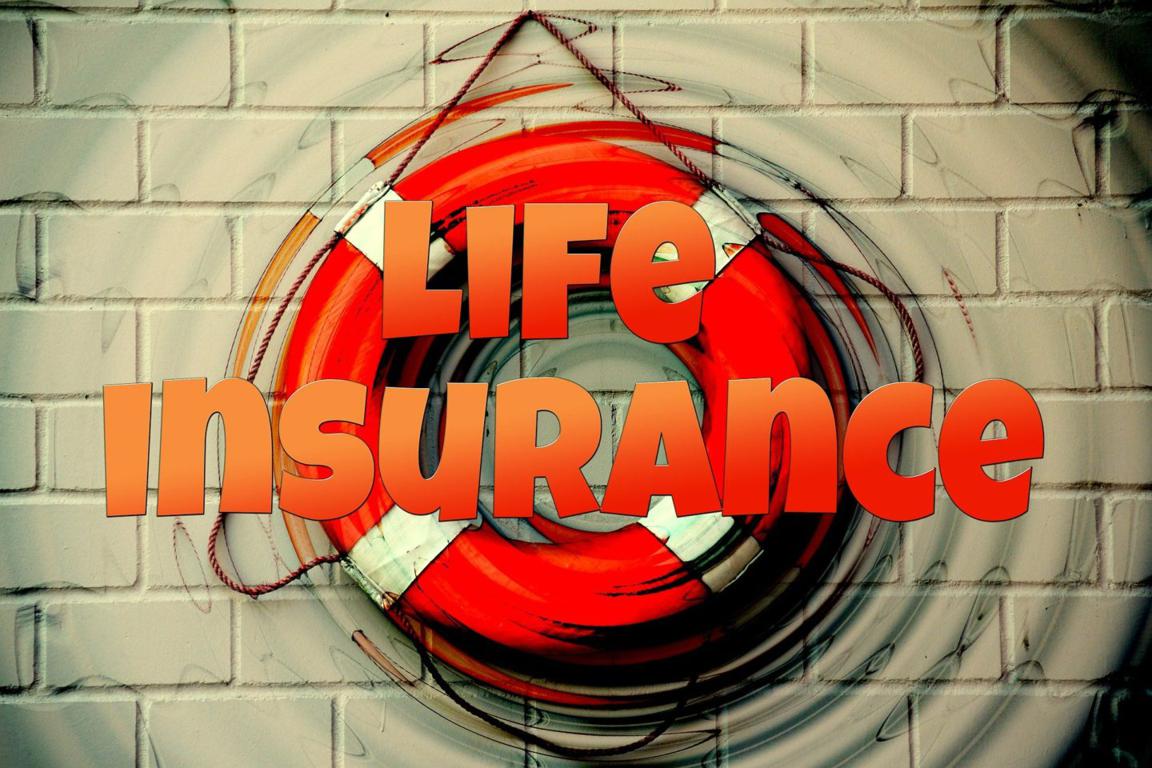Cash value life insurance is a type of life insurance that provides both a death benefit and an investment component. While it may seem complicated, understanding how cash value life insurance works can bring multiple benefits over time. By paying premiums into the policy, the policyholder creates a cash value that grows over time.
This cash value can be accessed by the policyholder at any time through withdrawals or policy loans, which can be used for a range of financial needs. The policy’s death benefit also provides protection for loved ones in the event of the policyholder’s death.
In this blog post, we will explore how cash value life insurance works and what benefits it can provide.
How Does Cash Value Life Insurance Work
Cash value life insurance is a type of life insurance policy that allows the policyholder to build up savings over time, in addition to providing a death benefit for their beneficiaries. The policy accumulates cash value over time, which can be borrowed against or withdrawn as needed.
This article will explore the mechanics of cash value life insurance, including how it works, how payments are structured, and the advantages and disadvantages of this type of policy.

Definition of Cash Value Life Insurance
Cash value life insurance is a type of life insurance policy that combines a traditional life insurance policy with a savings component. The savings component is called the cash value, which accumulates over time and is tax-deferred until it’s withdrawn.
This means that each time you make a premium payment, a portion of it goes towards the policy’s cash value. The cash value can then be used as a source of funds for policyholders in a variety of ways, such as paying for the policy’s premiums, borrowing against it, or cashing it out entirely. In essence, cash value life insurance is a long-term investment that provides both life insurance coverage and a savings vehicle, making it an attractive option for people who want to plan for their financial future while also protecting their loved ones.

Explanation of cash value component
The cash value component of a cash value life insurance policy is essentially a savings account within the policy itself. The insurance company invests a portion of your premium payments in various investment vehicles, such as stocks, bonds, and mutual funds. The cash value grows based on the performance of these investments, and the policyholder can access it as needed.
The amount of cash value that accumulates over time varies based on several factors, such as the type of policy you have, the length of time you’ve had the policy, and the amount of premiums you’ve paid. However, it’s important to note that accessing the cash value through policy loans or withdrawals can reduce the death benefit of the policy, so it’s crucial to understand the potential implications beforehand.
Types of cash value life insurance policies
There are several types of cash value life insurance policies available, each with different characteristics and benefits. Whole life insurance is the most common type, offering a guaranteed death benefit and level premium payments for the duration of the policy. The cash value component grows at a fixed interest rate, providing stability and predictability.
Universal life insurance is more flexible, allowing policyholders to adjust their premium payments and death benefits as needed. The cash value component grows at a variable interest rate, providing the potential for higher returns but also higher risk.
Variable life insurance offers even more investment options, allowing policyholders to choose from a variety of investment vehicles to grow their cash value. This type of policy also comes with higher fees and expenses, but potentially higher returns as well.
Understanding the differences between these types of policies and how they fit your specific financial goals is crucial in choosing the right type of cash value life insurance for you.
How Cash Value Life Insurance Works
Cash value life insurance policies offer both a death benefit and a savings component that accumulates over time. As policyholders make premium payments, a portion of that payment is allocated towards the cash value account. The cash value grows tax-deferred and can be accessed by the policyholder through loans or withdrawals.
However, it’s important to remember that any outstanding loans or withdrawals will reduce the death benefit paid out to beneficiaries. Additionally, policyholders can surrender their policy and receive the cash value, but this may also come with surrender charges and taxes.
Cash value life insurance policies can provide a valuable source of savings and an added layer of financial protection for loved ones. However, it’s important to carefully consider the benefits and drawbacks of each type of policy and to work with a financial professional to determine the best fit for your individual needs and goals.

Premium payments and policy expenses
When it comes to cash value life insurance, premiums are typically higher than those of traditional term life insurance policies. This is because a portion of each premium payment goes towards the cash value account.
Additionally, there may be other policy expenses, such as administrative fees and mortality charges, which can further increase the cost of the policy.
It’s important to factor in these expenses when considering the affordability of a cash value life insurance policy. However, some policies offer the ability to pay premiums for a limited time period, after which the policy is considered paid-up and no additional premiums are required.
Types of cash value life insurance policies
There are several types of cash value life insurance policies, including whole life, universal life, and variable life. Whole life insurance provides a guaranteed death benefit and a set cash value growth rate, while universal life insurance offers more flexibility in premium payments and death benefit amounts.
Variable life insurance allows policyholders to invest the cash value in separate accounts tied to investment portfolios.
Choosing the right type of cash value life insurance policy depends on individual financial goals and preferences. It’s important to carefully review the features and benefits of each policy with a financial professional to make an informed decision.
Tax implications of cash value life insurance
One of the main advantages of cash value life insurance is its tax-deferred growth. This means that policyholders are not required to pay taxes on the cash value growth until they withdraw or surrender the policy.
However, any withdrawals or surrenders may be subject to income taxes and potential penalties.
Additionally, beneficiaries typically receive the death benefit free from income tax. However, if there are any outstanding loans or withdrawals on the policy, the death benefit may be reduced by the outstanding amount.
Cash value accumulation and growth
Cash value life insurance is a unique form of life insurance that offers policyholders the opportunity to accumulate cash value over time. This cash value grows tax-deferred and can be used for a variety of purposes, such as supplementing retirement income or paying for education expenses. The cash value accumulation and growth is determined by several factors, including the policy’s interest rate, investment performance, and mortality experience.
Policyholders can also choose to pay additional premiums or make lump sum deposits to increase the cash value growth. It’s important to note that cash value growth is not guaranteed and can be affected by changes in interest rates or policy expenses.
It’s crucial to regularly review the policy and adjust premiums or investment strategies as needed to ensure the desired cash value growth. In summary, cash value life insurance offers policyholders the ability to accumulate tax-deferred cash value over time, but premiums and expenses can be higher than traditional term life insurance policies. Choosing the right type of policy and carefully reviewing features with a financial professional is crucial for making an informed decision.
Additionally, understanding the tax implications and regularly reviewing the policy’s cash value growth can help maximize the potential benefits of cash value life insurance.
Options for utilizing cash value
Once cash value has accumulated in a life insurance policy, policyholders have several options for utilizing this money. One option is to withdraw the cash value as a lump sum, but this may come with tax consequences and potentially reduce the death benefit of the policy. Another option is to borrow against the cash value and pay back the loan with interest, which can provide some flexibility and access to funds without affecting the death benefit.
Policyholders can also use the cash value to pay premium payments or purchase additional coverage, which can help keep the policy in force and potentially increase the death benefit. Finally, policyholders can choose to surrender the policy and receive the cash value as a payment, but this means forfeiting the death benefit and potentially facing tax consequences.
By understanding the different options for utilizing cash value, policyholders can make informed decisions about how to best manage their life insurance policies and potential financial needs.
Surrendering or borrowing against the policy
Life insurance policies can provide more than just a death benefit. Cash value is one of the features that can be utilized to provide policyholders with access to funds. When cash value has accumulated, there are several options for policyholders to choose from.
They can either withdraw the cash value as a lump sum, borrow against it, use it to pay premium payments, purchase additional coverage or surrender the policy. However, policyholders should consider the impact of their choices to ensure that their life insurance goals are not undermined.
They may forfeit part of the death benefit, lose the policy’s advantages, or end up paying taxes so they need to weigh their options carefully. Ultimately, it’s important to understand how cash value life insurance works and how it can work for you.
Factors to Consider When Purchasing Cash Value Life Insurance
When choosing a life insurance policy, it’s essential to understand the components that make it up. Cash value life insurance, also known as permanent life insurance, has cash value accumulation as one of its primary features. However, there are several factors that one should consider before purchasing this type of policy.
One should decide how much premium they can afford since cash value policies have higher premiums than term policies. They should also ensure that the insurer has a stable financial history to guarantee that the policy’s cash value will perform as expected.
Additionally, insurance purchasers should understand their long-term goals, such as leaving a legacy to their heirs or building cash value. This knowledge will guide them in selecting the appropriate policy that aligns with their objectives.
In conclusion, cash value life insurance comes with many features and options, which can be a bit overwhelming.
However, with careful consideration and proper guidance, one can use this type of policy to its fullest potential to achieve their long-term goals.

Cost versus benefit analysis
When shopping for cash value life insurance, it’s crucial to weigh the costs and benefits of the policy. While the premiums may be higher, cash value policies provide a savings component that can be used for various purposes, such as borrowing against the policy or supplementing retirement income.
However, it’s essential to note that the cash value accumulation may take several years, and withdrawing funds early may result in penalties or reduced death benefit. Therefore, buyers should carefully evaluate their financial needs and the policy’s potential returns before making a purchase. Ultimately, cash value life insurance can be an excellent option for those seeking a long-term savings vehicle and legacy planning.
With the right mindset and strategy, one can use this policy to build wealth and provide financial security for their loved ones.
Personal financial goals and needs
Before considering cash value life insurance, it’s essential to assess one’s personal financial goals and needs. Do you require a policy solely for death benefits, or do you also want a savings component? Are you seeking a long-term investment option?
These questions can help determine whether cash value life insurance is the right choice. Buyers should also consider their debt level, income, and other financial obligations to ensure the premiums are affordable and sustainable.
Overall, understanding how this policy fits into one’s financial plan is crucial for making an informed decision.
Expected investment returns compared to alternative options
Cash value life insurance policies combine a life insurance component with an investment component, which can be attractive to buyers considering long-term savings options. The investment component can grow tax-deferred and potentially earn higher returns than other savings vehicles, such as savings accounts or certificates of deposit.
However, it’s important to note that the investment returns are not guaranteed and can vary.
Additionally, buyers should compare the expected investment returns with other investment options, such as mutual funds or exchange-traded funds, to determine if cash value life insurance is the most suitable option for their financial goals.
Buyers should also consider the fees associated with cash value life insurance policies, which can reduce the investment returns and affect overall affordability.
How the cash value component works
The cash value in a life insurance policy grows over time through investments selected by the insurance company. These investments may include bonds, stocks, and mutual funds.
The policyholder can potentially access the cash value component of the policy through withdrawals or loans. These options, however, can reduce the death benefit or increase the policy’s overall costs and should be considered carefully.
Furthermore, any unpaid loan or withdrawal amounts will be deducted from the death benefit paid to beneficiaries upon the policyholder’s death.
As a result, buyers should carefully evaluate the trade-offs between accessing the cash value component and maintaining the desired death benefit amount.
The importance of regular policy reviews
Cash value life insurance policies can be complex financial instruments that should be reviewed regularly.
Buyers should regularly review their policies to ensure they are still meeting their financial goals and needs.
Policyholders should evaluate how the investment component is performing, whether the death benefit amount is sufficient, and if the premiums are still affordable and sustainable. Unexpected changes in financial situations or goals may necessitate adjustments or changes to the policy.
Regular policy reviews can help ensure that the cash value life insurance policy remains an appropriate and effective part of one’s overall financial plan.
Risks and limitations of cash value life insurance
Cash value life insurance policies can offer potential investment returns and additional savings options, but there are risks and limitations to consider. The investment returns are not guaranteed, and fees can affect affordability and reduce returns.
Additionally, accessing the cash value component through loans or withdrawals can reduce the death benefit and increase costs. To make the most of cash value life insurance policies, buyers should regularly review their policies and evaluate their financial goals and needs. It’s essential to carefully balance the trade-offs between accessing the cash value component and maintaining the desired death benefit amount.
Ultimately, cash value life insurance policies can be a valuable addition to a long-term financial plan, but buyers should carefully consider all factors before making a decision.
Pros and Cons of Cash Value Life Insurance
When it comes to life insurance, cash value policies offer a unique blend of protection, savings, and investment opportunities. These policies allow policyholders to build cash value over time, which can be accessed for various financial needs or expenses while still maintaining a death benefit.
However, like any financial product, cash value life insurance comes with its own set of pros and cons. One of the primary advantages of cash value life insurance is the potential for investment returns. Unlike traditional term life insurance policies, which offer only protection, cash value policies allow policyholders to invest in a variety of options, including mutual funds or variable annuities.
This can provide an additional source of retirement income or savings for major expenses like a child’s education or home purchase. However, investment returns are not guaranteed with cash value life insurance, and policyholders should carefully evaluate the risks and fees associated with different investment options.
Additionally, accessing the cash value component through loans or withdrawals can reduce the death benefit and increase costs. Policyholders must balance the potential benefits of using the cash value component against their financial goals and needs. In conclusion, cash value life insurance policies can be an excellent addition to a long-term financial plan, but buyers should carefully consider all factors before making a decision.
It is essential to assess the risks and limitations of cash value policies, including fees, potential investment returns, and trade-offs between the cash value and death benefit components. With careful planning and regular evaluation of the policy, cash value life insurance can provide both protection and savings opportunities for policyholders.

Advantages such as taxdeferred growth, estate planning benefits, and guaranteed death benefits
Cash value life insurance policies offer unique features and investment opportunities that set them apart from traditional life insurance policies. However, like any financial product, cash value policies have pros and cons that buyers should consider before making a decision. On the one hand, cash value life insurance policies provide investment opportunities that offer additional sources of income and savings for major expenses.
On the other hand, investment returns are not guaranteed, and accessing the cash value can reduce the death benefit and increase costs. Despite these limitations, cash value life insurance policies offer advantages such as tax-deferred growth, estate planning benefits, and guaranteed death benefits.
With careful planning and evaluation, cash value life insurance can provide long-term financial protection and savings opportunities for policyholders.
Disadvantages such as higher premiums, limitations on investment choices, and surrender charges
Cash value life insurance policies may seem like an appealing option for those seeking additional investment opportunities alongside traditional life insurance policies. However, it is important to note that these policies also come with a set of disadvantages that buyers should consider.
One major disadvantage is the higher premiums that come with cash value policies, as the investment portion of the policy requires additional costs to manage. Additionally, there may be limitations on investment choices and potential surrender charges if the policy is terminated early. Despite these drawbacks, cash value insurance policies offer unique benefits such as tax-deferred growth, estate planning advantages, and guaranteed death benefits.
As with any financial decision, careful evaluation and planning are crucial to making the right choice for your long-term financial protection.
Comparison to term life insurance and other investment options
When considering cash value life insurance policies, it is important to compare the options with traditional term life insurance policies as well as other investment opportunities. Term life insurance policies typically have lower premiums and provide coverage for a specific period, such as 10, 20, or 30 years.
On the other hand, cash value policies provide lifelong coverage but at a higher cost. Investment options, such as individual retirement accounts (IRAs) or mutual funds, may offer greater potential returns but without the added benefit of a guaranteed death benefit. Ultimately, the best option will depend on an individual’s financial needs, goals, and risk tolerance.
Consulting with a financial advisor can help determine which option is most suitable for your individual situation. In conclusion, cash value life insurance policies provide a unique combination of life insurance coverage and investment opportunities but come with a set of disadvantages.
Careful consideration and comparison with other options are necessary to ensure the right decision for your long-term financial protection.
Note Please note that the outline has balanced pros and cons, and it is up to the writer to take any stance or present wellbalanced views.
When it comes to life insurance, individuals have multiple options to consider. Cash value life insurance policies offer both insurance coverage and investment opportunities but come with a higher cost compared to traditional term life insurance policies.
While term policies cater to a specific period and have lower premiums, cash value policies ensure life-long coverage and potential investment returns. However, other investment options such as IRAs or mutual funds may offer better returns without the guaranteed death benefit. Consulting with a financial advisor can help determine the best option based on an individual’s financial needs, goals, and risk tolerance.
It is crucial to carefully evaluate and compare the available options to select the right one for long-term financial protection.
Conclusion of How Does Cash Value Life Insurance Work
Cash value life insurance is a type of permanent life insurance that can accumulate cash value over time, which can be borrowed against or withdrawn. Premiums paid on the policy are split between the cost of insurance and the cash value portion, which is invested by the insurance company. The cash value can grow tax-deferred and can be used for various purposes, including paying premiums, supplementing retirement income, or for emergency expenses.
FAQ’s of How Does Cash Value Life Insurance Work
How much is the cash value of a life insurance policy?
The cash value of a life insurance policy depends on various factors like the age of the policy, the amount of premiums paid, the interest rate, and the type of policy. Therefore, it is different for every policyholder, and one needs to check their policy document or contact their insurance company to get accurate information on the cash value of their life insurance policy.
What is the catch on cash value life insurance?
The catch on cash value life insurance is that it often involves high fees and premiums, and the returns on the cash value portion may not be as lucrative as other investment options. Additionally, withdrawing funds from the cash value can reduce the death benefit and in some cases trigger tax liabilities.
What is a weakness of cash value life insurance?
A weakness of cash value life insurance is that it can have high fees and expenses, which can limit the growth potential of the cash value and reduce the overall return on investment. Additionally, the premiums for cash value life insurance can be significantly higher than those for term life insurance, making it more expensive for policyholders.
What is the cash value on a $250life insurance policy?
Sorry, I cannot answer the question as it lacks important information such as the duration of the policy, the premium or the interest rate associated with the policy, and other policy details that affect the cash value.
What is the cash value of a $250life insurance policy?
As an AI language model, I cannot provide an accurate answer with the given information. The cash value of a $250 life insurance policy depends on several factors such as the type of policy, the length of time it has been active, the premium paid, and the performance of the investment portion of the policy. It is best to contact the insurance provider for an accurate calculation of the cash value.
What is cash value life insurance pros and cons?
Cash value life insurance offers a savings component in addition to the death benefit, which can grow tax-deferred over time. However, the premiums can be expensive and it may not be the most cost-effective way to invest money. Additionally, withdrawing from the savings component can reduce the death benefit or result in taxes and penalties.
How do you calculate cash value of a life insurance policy?
The cash value of a life insurance policy is calculated by subtracting any outstanding policy loans and interest owed from the total cash surrender value of the policy.













